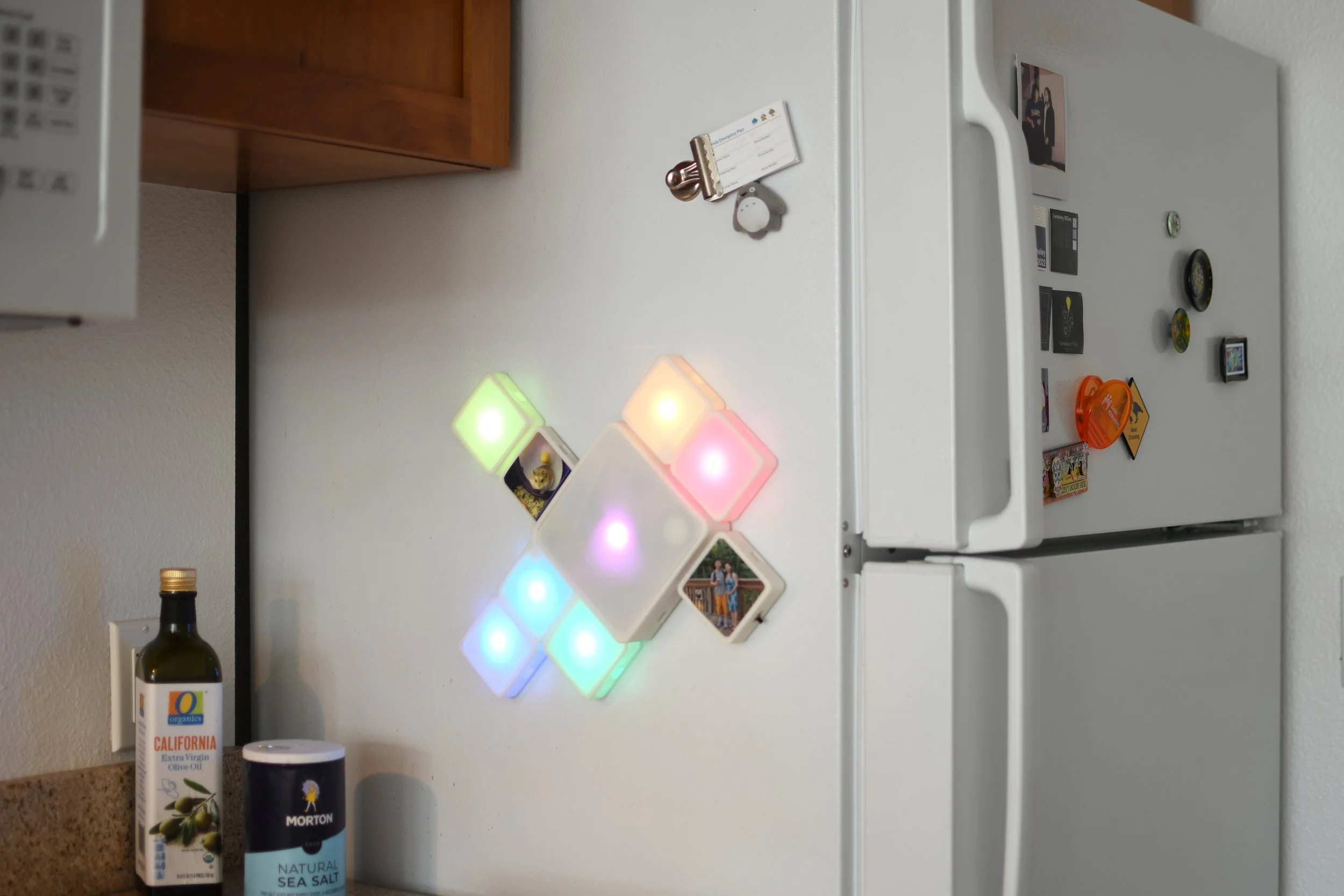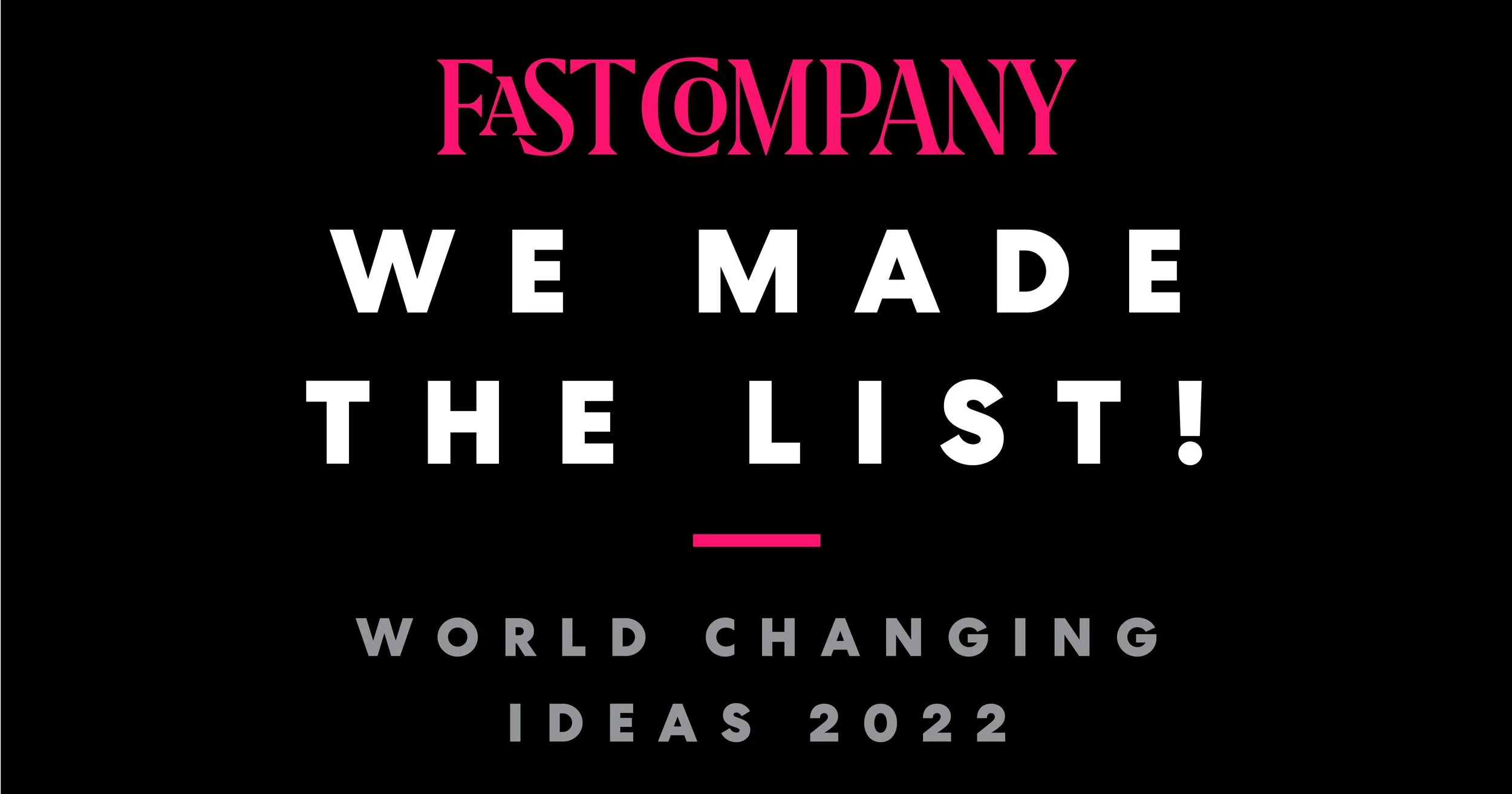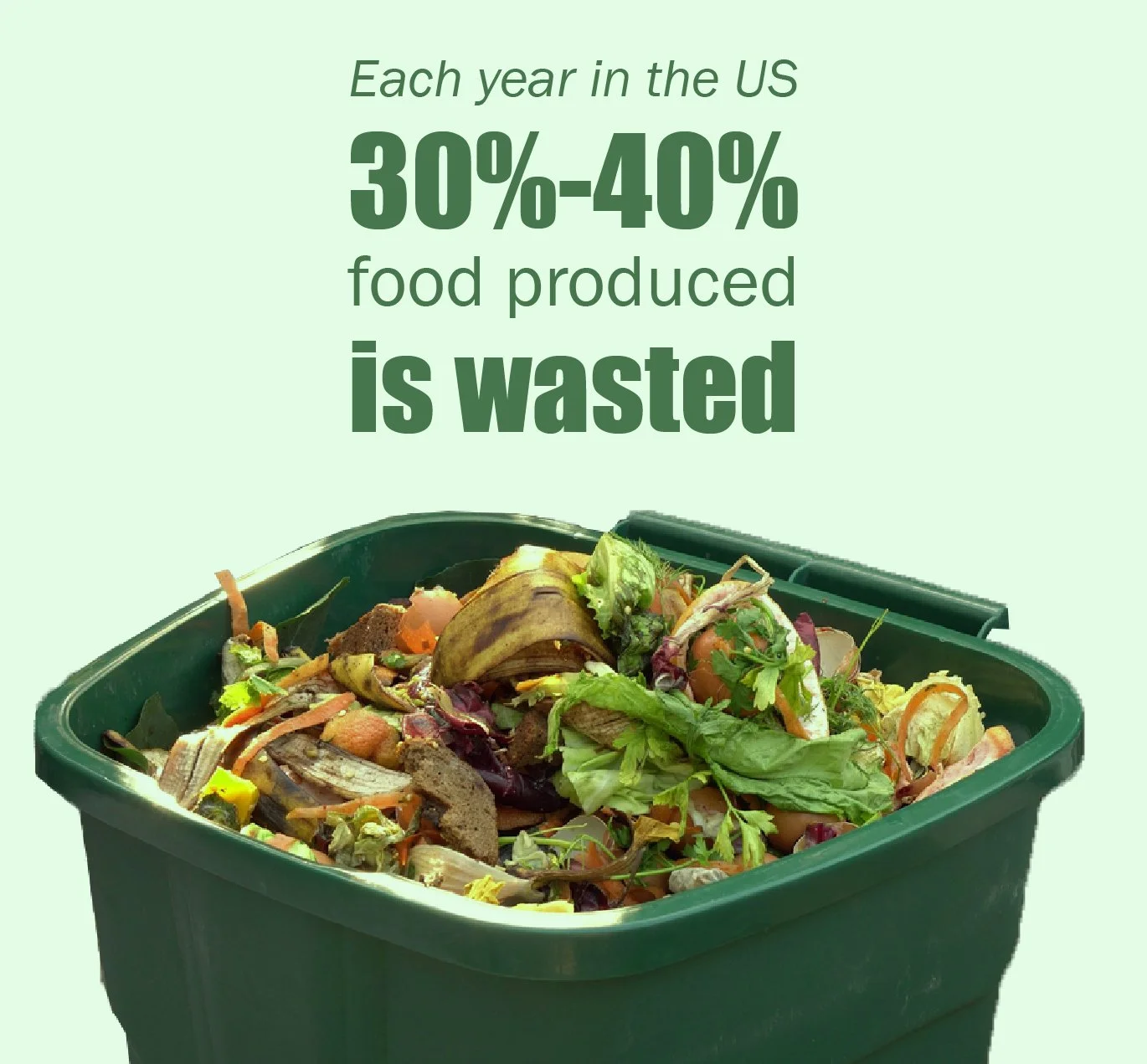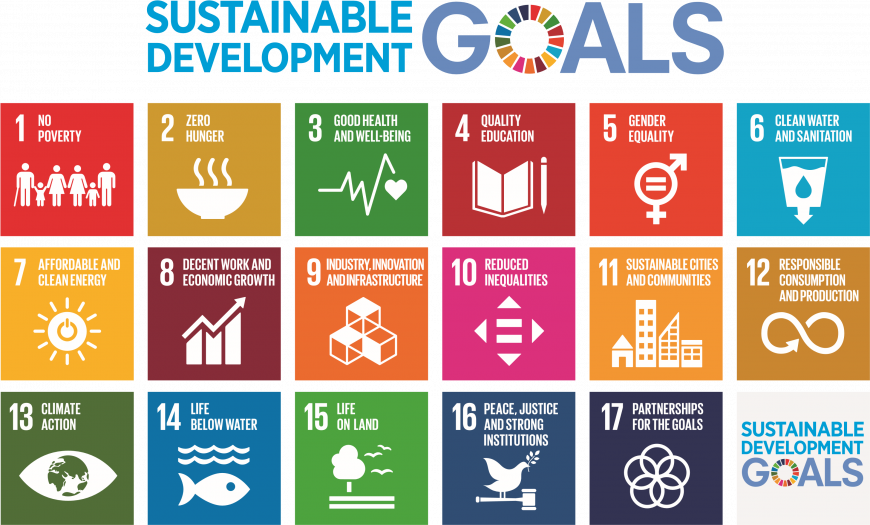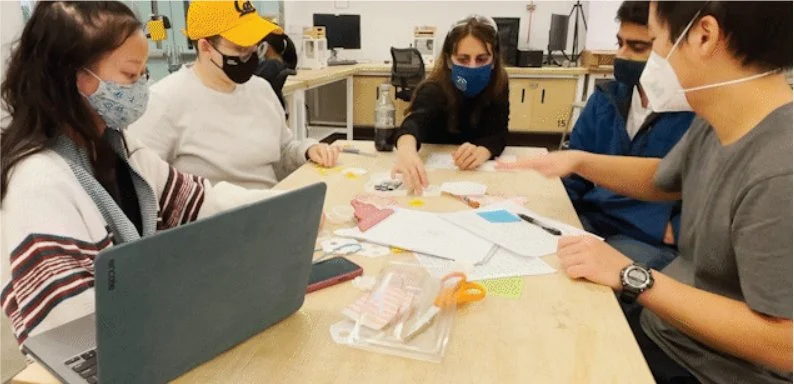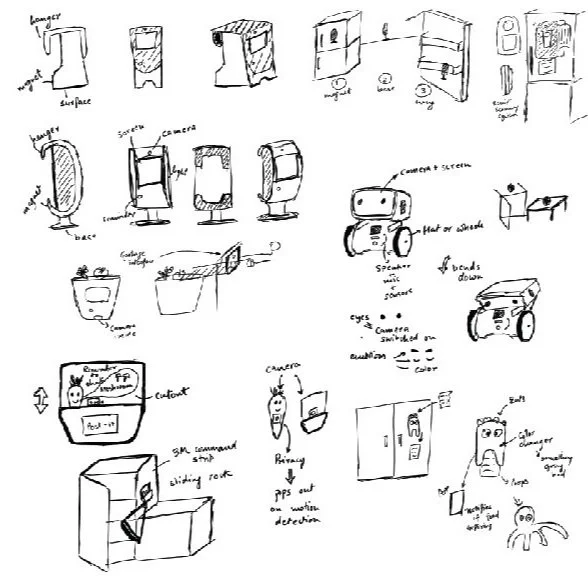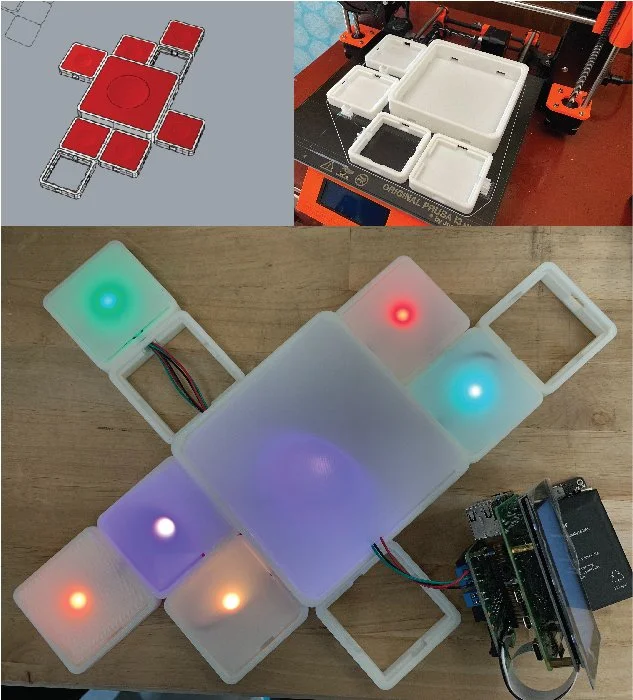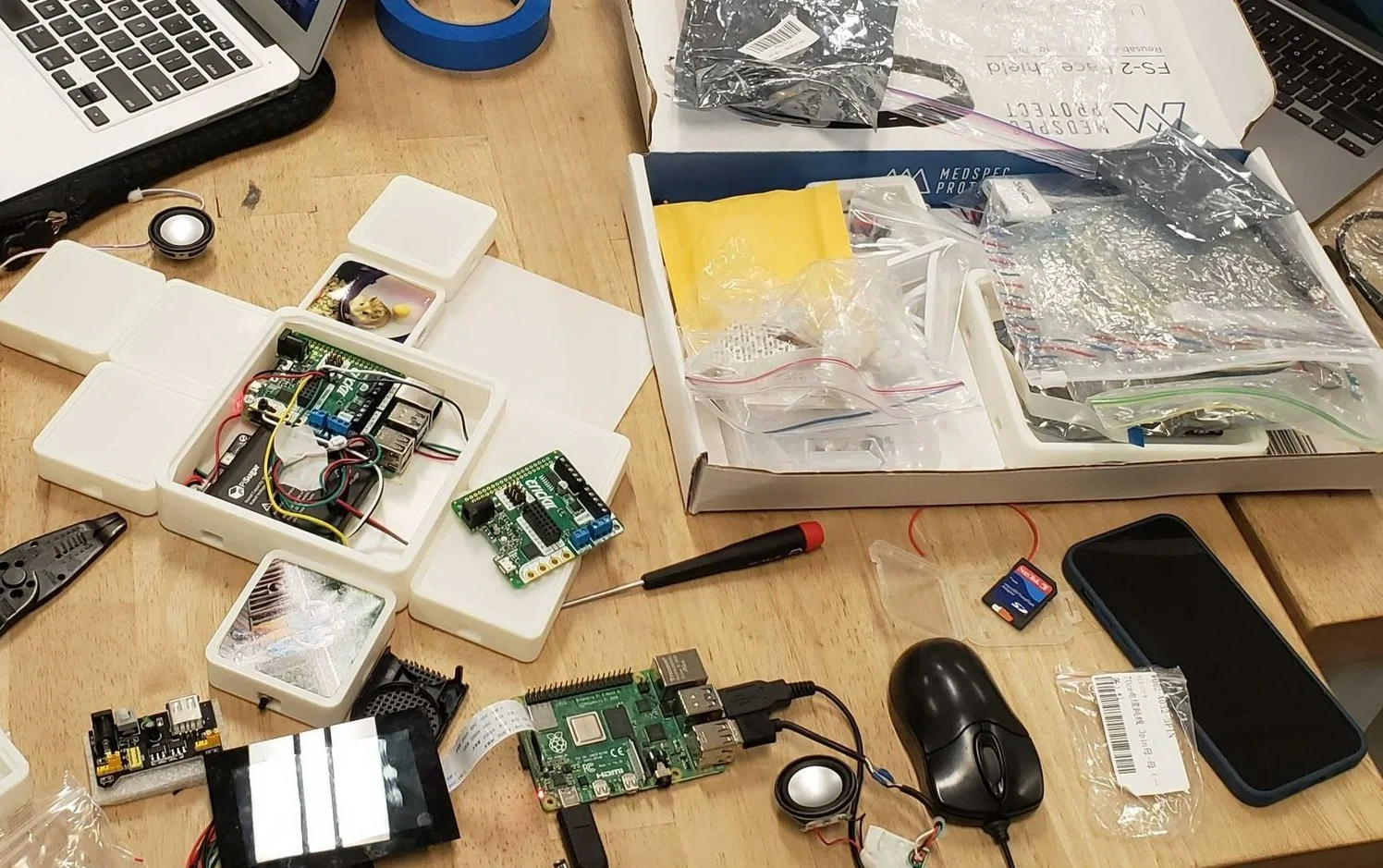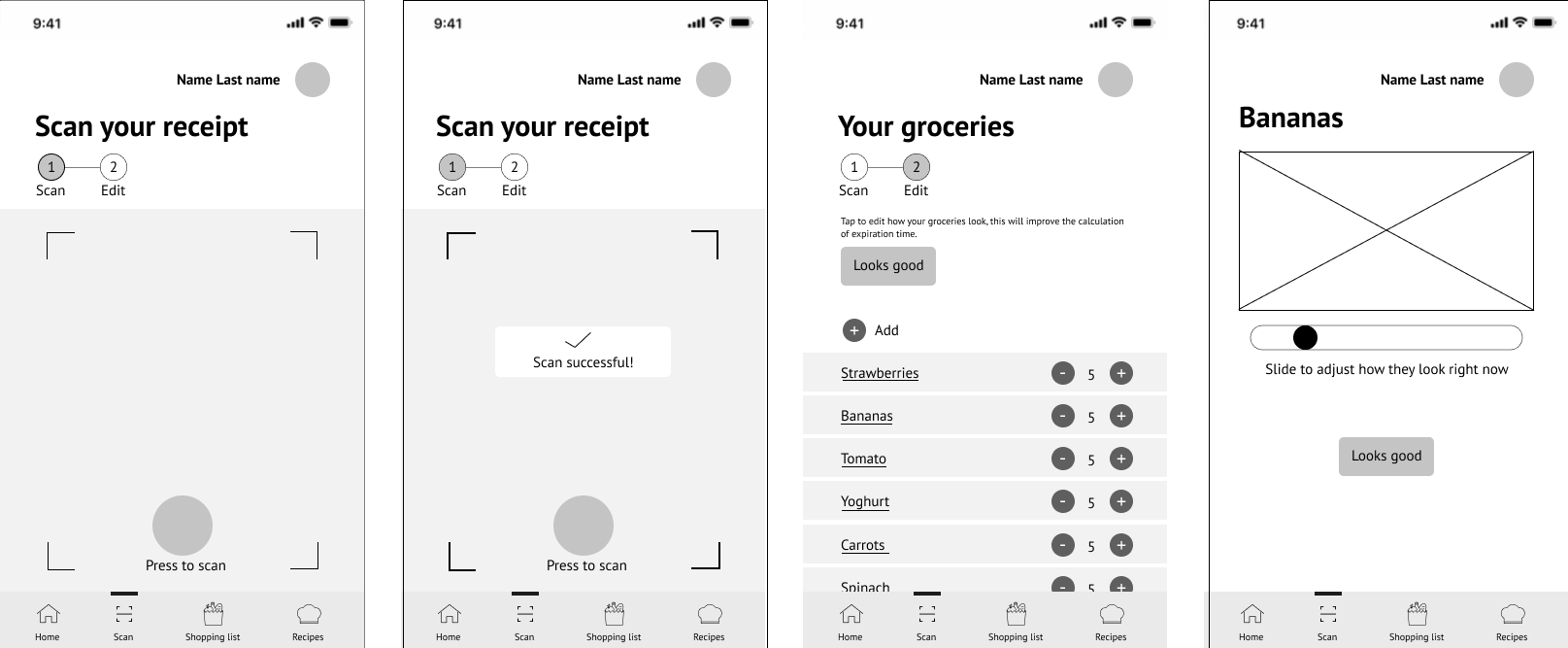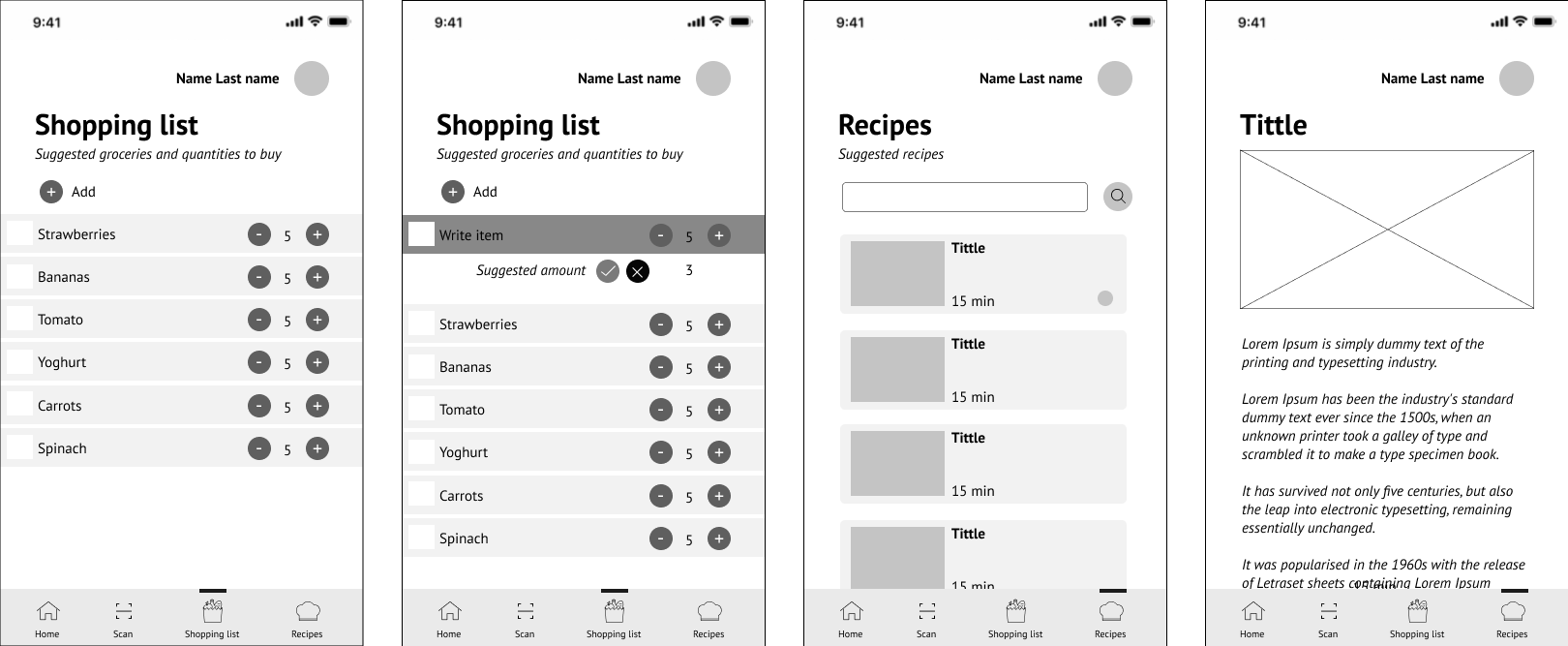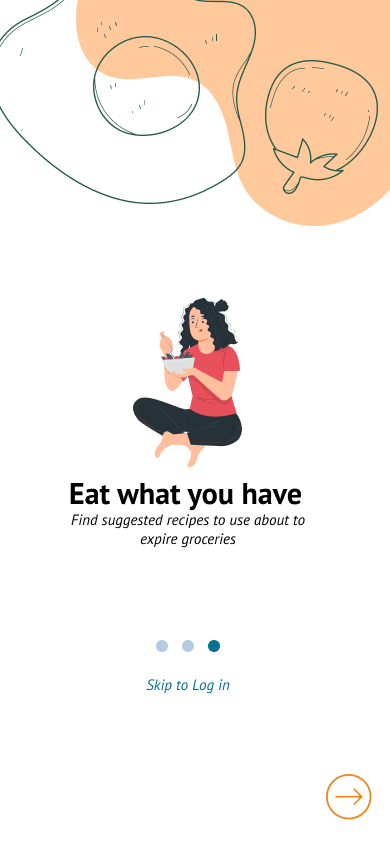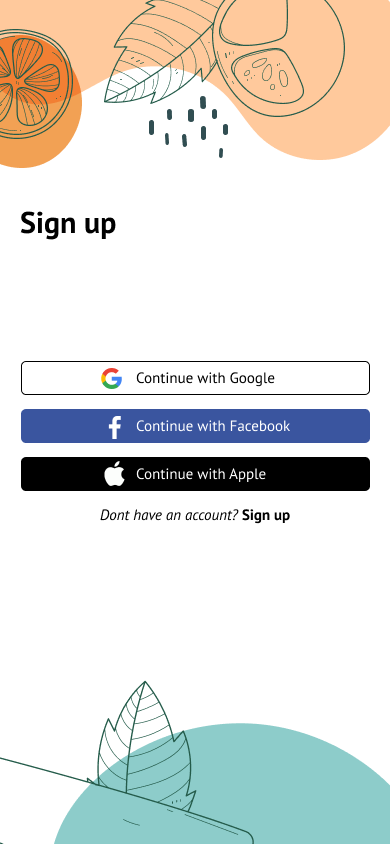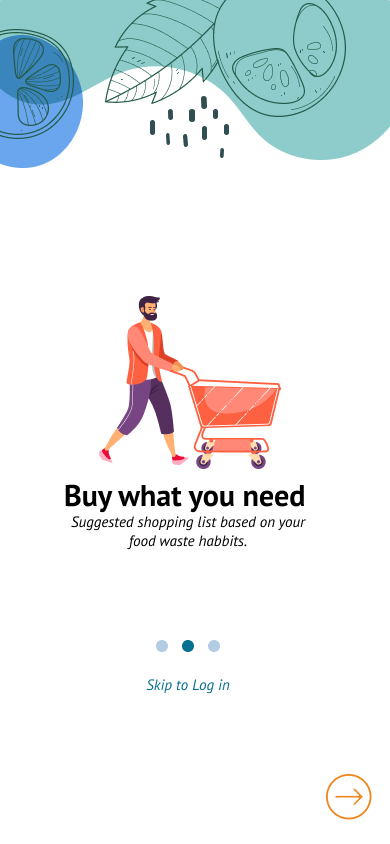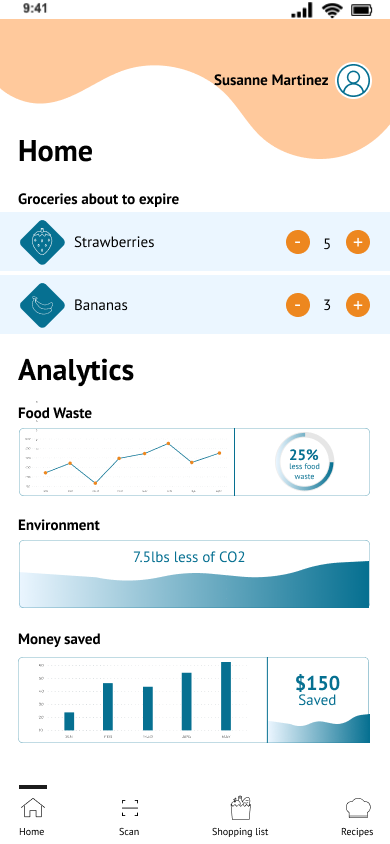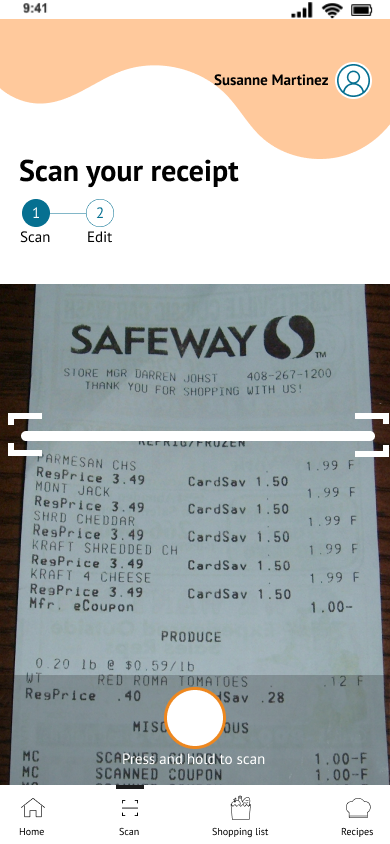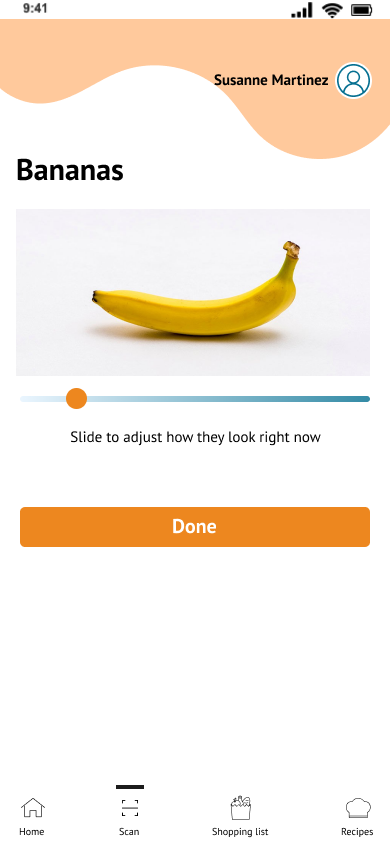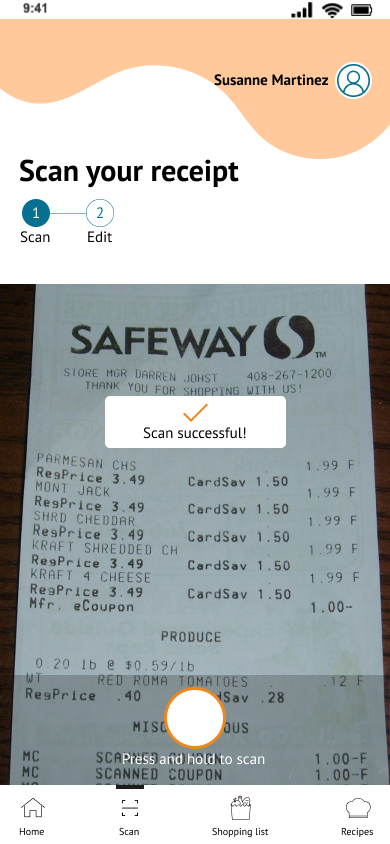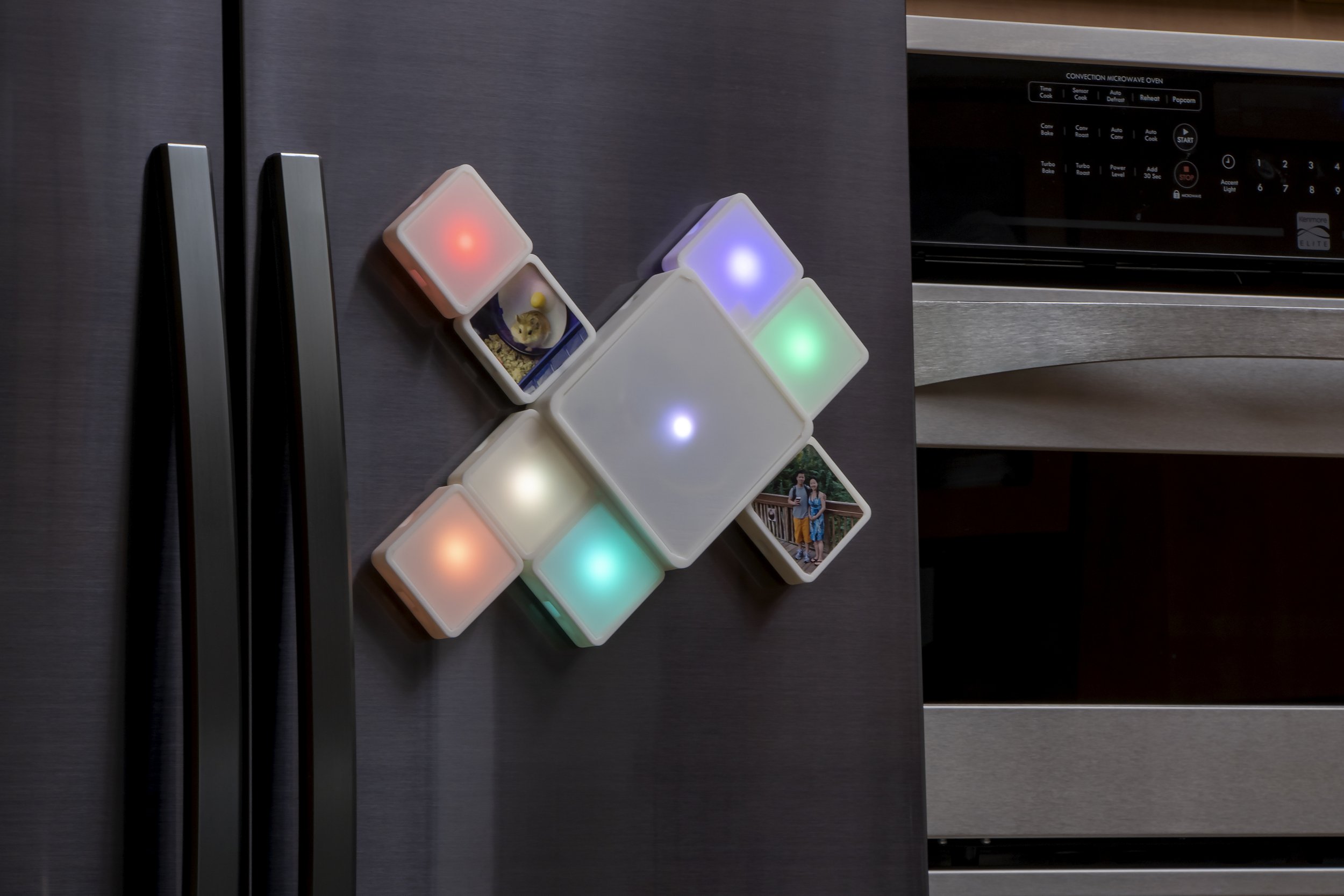
EIDOS
Our product EIDOS aims to reduce residential food waste by providing gentle ambient reminders about food that will expire or spoil soon. A companion app scans receipts to track and inform smart grocery shopping lists and recipes.
Collaboration with UC Berkeley, Master in Design candidates Akash Mahajan, Debbie Yuen, Eleanor Mayes, Roland Saekow.
My role: Research, ideation, 3d modelling, User experience in tangible and Digital app, UI in digital app, render, and video edition.
Winners for Students category at Fast Company World Changing Ideas 2022
Problem
In the United States, 33 billions lbs. of food are wasted each year.
That has a cost of $161 billions per year. source
US households are responsible for the biggest portion of food waste in the country. An average person wastes 238 pounds of food per year, which translates into 21% of the food they buy, worth a total of $1,800 per year. source
Motivation
According to the United Nations, by the year 2050 global population will reach 9.8 billion resulting in a 60% greater demand for food. Left unchecked, an estimated 840 million people will go hungry.
Of the 17 goals that the United Nations has established, solving hunger is the second highest goal, behind only ending poverty.
Research
We spoke to restaurants and grocery stores and learned about the existing programs businesses are implementing for compost and donating unused foods.
Our research found mostly solutions for dealing with waste after it had already been produced.
For example, the dining halls at UC Berkeley donates leftovers to the UC Berkeley food pantry which repackages them into new meals for pickup.
Since we found many existing solutions for reusing food waste, we chose to focus on source reduction.
Furthermore, 60% of all food waste happens in residential settings, so we narrowed the scope further to home kitchens.
How Might We…
Track and reward people for reducing food waste?
Teach people how to properly store foods to prevent early spoilage?
Enhance grocery shopping lists based on what you already have in your fridge?
Ideation & more research
We explored several different directions including a board game, interventions inside the fridge such as spot light, and an interactive waste bin.
We created fast prototypes of these three ideas to do new research and get more feedback.
“If I had to choose: a gentle sound. Not intrusive.”
“Intuitively, the light is easier to identify… the sound is not discrete... too much figuring out”
“If my fridge places something there I am going to take it!”
“I think that tracking will make you more conscious and is a good idea.”
“I would like to have the screen in a different place...I will not be able to see it, I want that experience in a place that I do not have to touch the bin.”
“it could be good for children, but I don’t know how much people will actually learn”
“I'd learn a lot better than reading a poster, or a brochure.”
“It would get tedious to move the pieces… Why not layout all the items on the counter and it lights up where to put it?
BUILDING HABITS ACROSS THE FOOD WASTE JOURNEY
After all our research we concluded that our product should focus on building new habits, it should track the food, notify the user, and help them buy groceries more efficient.
Ideation final concept
We worked on several ideas on how to change people’s habits. Finally we decided to work on an ambient solution to notify and track food waste.
Form exploration
We explored several modular shapes before finalizing on square tiles. We found that edges of certain shapes either informed or confused users about how to attach modules to each other. The final design has one edge with a portion that sticks out for connecting to other tiles. All other edges have sockets that serve as attachment points.
Prototyping
We prototyped our tangible product using Rhinoceros, 3d printing, and raspberry pi.
Tangible + App flows
Onboarding + connect tangible Eidos to App
Scan receipt
5 days to expire
2 days to expire
App
After research, we analyzed the main causes that produce food waste in households: Overbuying, over-cooking, forgetting about items. Based on that information, we thought about the essential features this app should have:
- Onboarding
- Home with statistics + food about to waste
- Receipt scanning
- List of groceries bought + edit items
- Suggested grocery list
- Suggested recipes
Low Fi Wireframes
Mid-fi wireframes
Accessibility
Using the Color Blind Figma plugin I checked how users with 8 different vision deficiencies will see our app. Our tangible user interface is white and it will be placed in a kitchen. Taking advantage of that, the app is fully white with headings in black. Moreover, it has a subtle kitchen tile background.
On boarding
It was very important for us to know the main motivation to reduce food waste, so we can show the most engaging stats on the home.
During our research we found out that different users have different motivations, students and younger people are particularly interested in saving money and protecting the environment, older users are more worried about society or the environment.
Logo
About Eidos
Goals
Connect your device
About Eidos
Sign up
Online Shopping
About Eidos
Create account
Dashboard/home
Scan receipt
After the user scans their receipt, they must be able to edit, delete, and/or add items. This will reduce possible software errors, and also gives a more customized experience.
Above that, each item can be edited with the slider to tell the system how green/yellow/brown the bananas are. In this way, the system has accurate information and will alert the user more precisely. This information will be saved, so the system will know that you always buy your bananas very green.
In our research we saw that overbuying food is one of the main causes of food waste. The suggested shopping list can be edited too and helps the user to actually reduce their food waste by buying only what they need.
Scan receipt
Groceries edit
Scan successful
Shopping list
Edit groceries
Add item on Shopping list
Recipes
One of the main causes of food waste is that users over-cook or forget about certain items in their fridge.
Our app sends suggested recipes to help users use what they have and cook the right amount of food. The system will automatically send to their phone suggested recipes to use up the food item that is about to expire. Furthermore, the user can search for any food recipe, and like the ones they like the most to re-use them in the future.
Recipes
Zucchinni recipe
Technical specifications
EIDOS is composed by a small amount of components. Each tile has a neopixel + button, the middle and bigger tile has all the rest of the components.
The team!
Here we are, happy that we won the MDes award to the best project of the class Technical Design Foundations.

